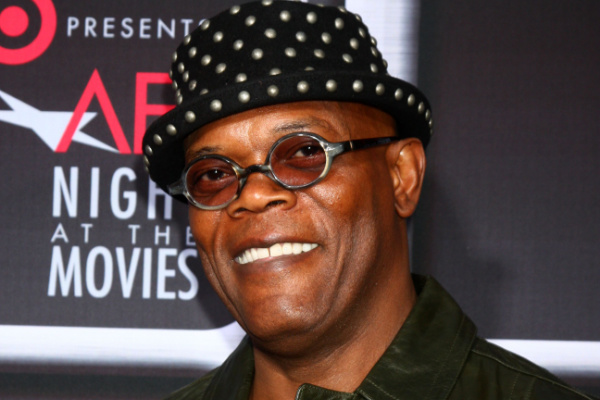On October 14, 1994, Pulp Fiction burst onto screens and forever transformed the landscape of independent filmmaking. Directed by Quentin Tarantino and co-written with Roger Avary, the film weaved together a darkly comic, non-linear narrative that mixed humor, violence, and pop culture with a fresh, unconventional style. With its unique structure and eclectic soundtrack, Pulp Fiction became more than a movie — it became a movement.
To commemorate the 30th anniversary, several cast and crew members have reflected on their experiences, detailing the film’s rocky origins, unforgettable performances, and its lasting legacy. From reviving John Travolta’s career to reshaping the economics of indie cinema, Pulp Fiction remains a defining piece of modern filmmaking.
A Video Store Dream That Almost Didn’t Happen
The origins of Pulp Fiction date back to the late 1980s, when Quentin Tarantino and Roger Avary worked together at the Video Archives rental store in Southern California. The initial concept was an anthology film featuring shorts by Tarantino, Avary, and another filmmaker. However, the project took a turn when Tarantino decided to expand the stories and direct it all himself.
Roger Avary recalls:
“The original idea was three short films with different directors. My short expanded into a feature script, but Tarantino couldn’t shake the idea of doing it all himself.”
Lawrence Bender, the film’s producer, noted that Tarantino found inspiration for Pulp Fiction while in Amsterdam, listening to surf rock music on a Walkman. One of those tracks, Dick Dale’s Misirlou, would become the iconic theme for the film’s opening credits.
Casting Battles and the Resurrection of John Travolta
Once the script was complete, Tarantino’s casting decisions faced skepticism from studio executives. Danny DeVito, an executive producer, remembers having to fight to keep John Travolta in the leading role.
“Harvey Weinstein wanted Daniel Day-Lewis, but Quentin insisted on Travolta. I told Harvey I had final cut, plus cast approval, and Quentin got what he wanted.”
Travolta, who had struggled with his career after the Look Who’s Talking films, credits Pulp Fiction for reviving his status as a serious actor.
“This gave me a second chance at the kind of career I always dreamed of. It elevated me back to the level of Saturday Night Fever and Blow Out.”
Samuel L. Jackson also nearly lost the role of Jules Winnfield, as another actor outshined him during auditions. But when Jackson returned, he delivered a performance that became legendary.
“Sam came back in and blew the doors off,” Bender recalled.
Bruce Willis, a major star at the time, joined the cast after a chance meeting with Tarantino. He loved Reservoir Dogs so much that he could recite it by heart. Tarantino and Willis took a walk on the beach, and by the end of the stroll, Willis was officially on board.
An Indie Hit That Redefined Success
With a modest budget of $8.5 million, Pulp Fiction shattered expectations by grossing $213 million at the box office. It proved that independent films could be both artistically innovative and commercially successful. Michael Shamberg, one of the executive producers, recalled:
“Only Harvey Weinstein bid on it, and when it premiered at Cannes, it got a standing ovation that felt like it would never end.”
Despite concerns over the film’s violence, especially during scenes like Uma Thurman’s adrenaline shot, the response from critics and audiences was overwhelmingly positive.
“At the New York Film Festival, someone fainted during the overdose scene,” Bender remembered. “Harvey Weinstein gave the guy his limo to take him home, worried that word of the incident might hurt the film’s release.”
Unforgettable Roles, Iconic Moments
From Samuel L. Jackson’s Bible-quoting hitman to Uma Thurman’s unforgettable dance with Travolta, Pulp Fiction is filled with indelible characters. Even minor roles left a lasting impact. Kathy Griffin, who had a small cameo, said:
“I loved that Quentin credited me as ‘Kathy Griffin plays Herself.’ It was his way of saying, ‘I know you want to be famous.’”
Christopher Walken, who delivered the now-famous “watch monologue,” shared a surreal moment he experienced years later:
“I was in a steam room in Malta, and a guy started quoting my entire speech from the movie. That’s when I realized how far the film’s reach had gone.”
A Lasting Legacy
Even three decades after its release, Pulp Fiction continues to influence filmmakers, spawning countless homages, imitations, and parodies. Its impact extended beyond storytelling and filmmaking techniques — it reshaped the way studios approached independent cinema, proving that bold, unconventional films could succeed at the box office.
For many of the cast and crew, the film marked a turning point in their lives. John Travolta reflected:
“It’s one of the most special projects I’ve been part of. It reignited my career and gave me a place in cinematic history.”
Roger Avary, who co-wrote the screenplay, summed up the personal impact:
“The success of Pulp Fiction made it possible for me to raise a family. It’s a gift I’ll never take for granted.”
—
Photo Credit: Kathy Hutchins / Shutterstock.com
